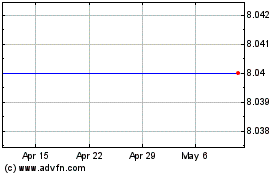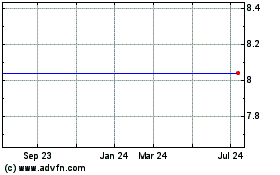Celera Provides Update on Recent Scientific Findings on KIF6 and PMA Application
April 20 2011 - 4:15PM
Business Wire
Celera Corporation (NASDAQ:CRA) today provided an update on
recent scientific findings pertaining to the KIF6 gene variant and
its pre-market approval application (PMA) with the United States
Food and Drug Administration (FDA) for its KIF6 Genotyping Assay.
In nine previously published peer-reviewed articles on genetic
studies of KIF6, including 4 prospective randomized clinical trials
of statin therapy (CARE, WOSCOPS, PROSPER, and PROVE IT), KIF6
carriers had greater risk for coronary heart disease (CHD) and
received greater benefit from pravastatin therapy (or from
high-dose atorvastatin compared with pravastatin in the PROVE IT
trial) than did noncarriers. Two recent papers in peer-reviewed
publications, and two posters presented at the annual meeting of
the American College of Cardiology earlier this month, provided new
information relative to KIF6 that differed in several important
respects from the above-mentioned genetic studies.
One poster was on the results of genotyping KIF6 in the JUPITER
clinical trial (Justification for use of Statins in Primary
Prevention, An Intervention Trial Evaluating Rosuvastatin), and the
second poster was on the TNT (Treating to New Targets) and the
IDEAL (Incremental Decrease in Endpoints Through Aggressive Lipid
lowering) studies. JUPITER was a study of rosuvastatin versus
placebo in patients with low LDL-C but high C-reactive protein
levels. KIF6 carriers benefited from statin therapy in JUPITER;
however, unlike the 4 previous trials of high risk subjects noted
above, KIF6 noncarriers also benefited from rosuvastatin in
JUPITER. Because the trial was stopped early, there were not enough
events in JUPITER to accurately assess the association between KIF6
719Arg and risk for cardiovascular disease (the statistical power
was only 18%). Since the differential statin benefit between
carriers and noncarriers previously observed in clinical trials of
pravastatin or atorvastatin was not observed in JUPITER, the
differential benefit in KIF6 carriers may not apply to all statins
as a class. This study was published1 online in Circulation
Cardiovascular Genetics, on April 14, 2011.
TNT was a study of high- versus low-dose atorvastatin in
patients with stable coronary heart disease. In TNT, carriers of
two copies of the KIF6 719Arg variant received significant event
reduction (56% relative risk reduction) and noncarriers did not
receive significant event reduction. However, unlike the previous
statin trials, carriers of one copy of the KIF6 variant did not
receive significant event reduction, possibly because the
treatments compared in TNT were with the same statin and differed
only in dose, a difference that may be less significant than
differences between statins. Also, the previous PROVE IT trial had
enrolled acute coronary syndrome patients who may benefit more from
a KIF6-related pleiotropic effect of high-dose statin therapy than
would the stable CHD patients in TNT. Since there was no placebo
arm in TNT, an association of KIF6 genotypes with risk for CHD
could not be assessed.
IDEAL was a study of high dose atorvastatin versus standard dose
simvastatin in patients with stable CHD. As in the original IDEAL
trial, in which a significantly better reduction of primary
endpoint events from intensive statin therapy was not achieved, in
the genetic study of IDEAL significant reduction of primary
endpoint events was also not achieved in either KIF6 carriers or
noncarriers. Since there was no placebo arm in IDEAL, an
association of KIF6 genotypes with risk for CHD could not be
assessed.
On March 30, 2011, the Journal of the American College of
Cardiology published2 a study of KIF6 in the Heart Protection Study
(HPS) that compared simvastatin versus placebo in patients with
prior cardiovascular disease, noncoronary vascular disease,
diabetes, or hypertension. In HPS, KIF6 carriers received a
significant reduction of both major coronary and stroke events from
simvastatin therapy and noncarriers did not receive a significant
reduction in stroke events. However, in contrast to previous
genetic studies, KIF6 noncarriers treated with simvastatin had
significantly reduced cardiovascular events. Like the JUPITER
results, the HPS results suggest that KIF6 carriers do not receive
preferential cardiovascular event reduction from treatment with
every statin. The HPS authors also found that KIF6 carriers were
not at greater risk of CHD in the placebo group. However, all
patients in the HPS placebo group received simvastatin therapy
during a 4 to 6 week run-in period, and by the end of the study 33
percent of those in the placebo group were using a non-study
statin, factors which could have confounded the results.
Celera believes that differences in study design and patients’
clinical phenotypes could explain the contradictory results
described above and that research in progress on the biological
function of KIF6 could add support for the association with risk
for CHD and statin benefit.
Citing, among other things, preliminary reports on some of these
studies, the FDA sent a decision letter to Celera on April 7, 2011
stating that the PMA application the company submitted for its KIF6
Genotyping Assay was not approvable without major amendment. The
letter states that the clinical data and peer-reviewed publications
submitted in support of the PMA are insufficient to demonstrate the
safety and effectiveness of the device for its proposed intended
use. Further, the FDA stated that it believes that the approach to
demonstrate the safety and effectiveness of the KIF6 Genotyping
Assay for the intended indications would be to collect additional
data on clinical utility, which could include conducting a
prospective, randomized, controlled clinical trial. Celera has
requested a meeting with the agency to discuss the deficiencies
cited in the letter as well as next steps toward seeking approval
of the KIF6 Genotyping Assay.
References
1. Ridker et al., Circ Cardiovasc Genet (Published online April
14, 2011).
2. Hopewell et al., J Am Coll Cardiol,
doi:10.1016/j.jacc.2011.02.015 (Published online 30 March
2011).
About Celera
Celera is a healthcare business focusing on the integration of
genetic testing into routine clinical care through a combination of
products and services incorporating proprietary discoveries.
Berkeley HeartLab, a subsidiary of Celera, offers services to
predict cardiovascular disease risk and improve patient management.
Celera also commercializes a wide range of molecular diagnostic
products through Abbott and has licensed other relevant diagnostic
technologies developed to provide personalized disease management
in cancer. Information about Celera Corporation, including reports
and other information filed by the company with the Securities and
Exchange Commission, is available at http://www.celera.com.
Forward-Looking Statements
Certain statements in this press release are forward-looking.
These may be identified by the use of forward-looking words or
phrases such as "believe," "plan," and "could," among others. These
forward-looking statements are based on Celera Corporation's
current expectations. The Private Securities Litigation Reform Act
of 1995 provides a "safe harbor" for such forward-looking
statements. In order to comply with the terms of the safe harbor,
Celera notes that a variety of factors could cause actual results
and experience to differ materially from the anticipated results or
other expectations expressed in such forward-looking statements.
These factors include but are not limited to: (1) the risks that
Celera may not receive required regulatory approvals to
commercialize a diagnostic product for KIF6; (2) Celera is using
novel and unproven methods to discover markers for the development
of new diagnostic products, which may not be successful; (3)
Celera's scientific discoveries may not be replicated in studies by
other investigators, which may negatively impact the acceptance of,
or reimbursement for, its diagnostic products; (4) the diagnostic
industry is very competitive, and new diagnostic products may not
be accepted and adopted by the market; (5) demand for diagnostic
products may be adversely affected if users of these products
cannot receive adequate reimbursement for these products from third
party payors such as private insurance companies and government
insurance plans; (6) potential product liability or other claims
against Celera as a result of the testing or use of its products;
and (7) uncertainty of the availability to Celera of intellectual
property protection, limitations on its ability to protect trade
secrets, the risk to it of infringement claims, and the possibility
that it may need to license intellectual property from third
parties to avoid or settle such claims. The foregoing list sets
forth some, but not all, of the factors that could affect Celera's
ability to achieve results described in any forward-looking
statements. For additional information about the risks and
uncertainties that Celera faces and a discussion of its financial
statements and footnotes, see documents filed by Celera with the
SEC, including its Annual Report on Form 10-K and all subsequent
periodic reports. All information in this press release is as of
the date of the release, and Celera does not undertake any duty to
update this information, including any forward-looking statements,
unless required by law.
Copyright© 2011. Celera Corporation. All Rights Reserved. Celera
is a registered trademark of Celera Corporation or its subsidiaries
in the U. S. and/or certain other countries.
Celera Corp. (MM) (NASDAQ:CRA)
Historical Stock Chart
From Mar 2024 to Apr 2024

Celera Corp. (MM) (NASDAQ:CRA)
Historical Stock Chart
From Apr 2023 to Apr 2024
